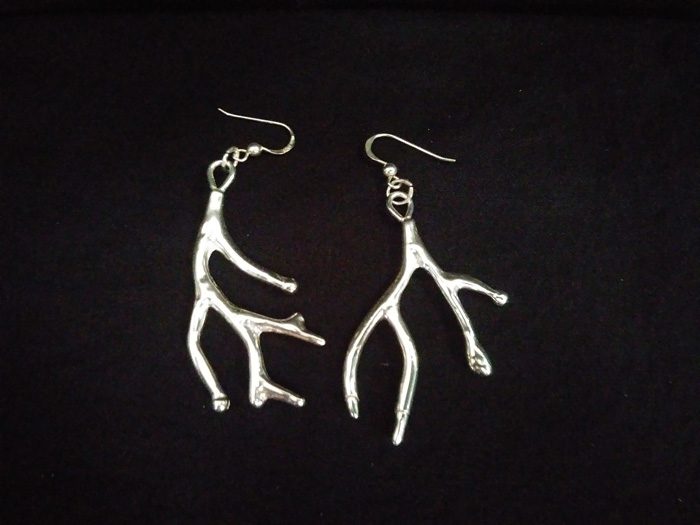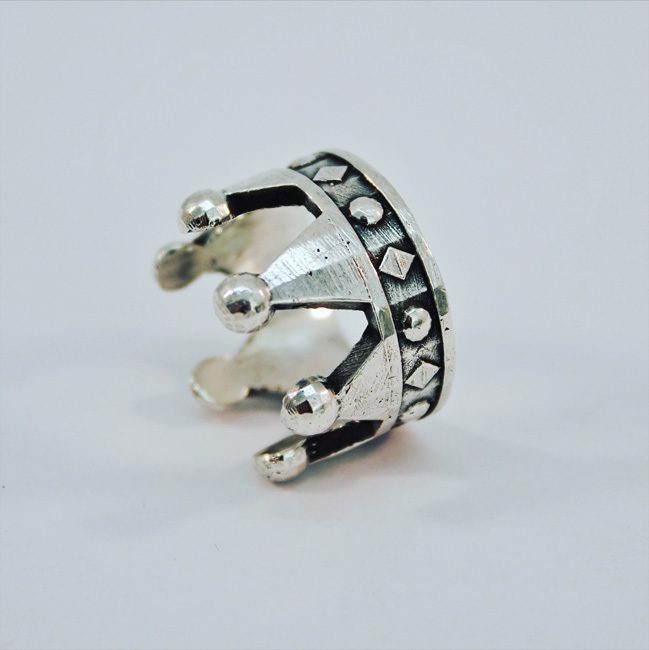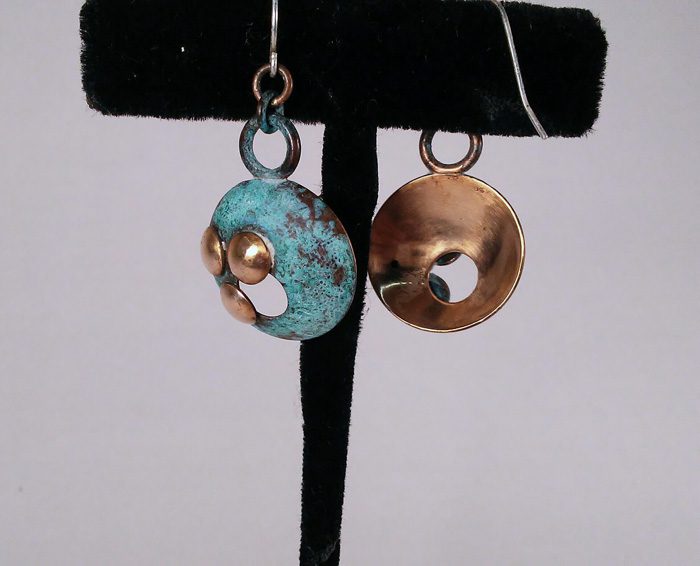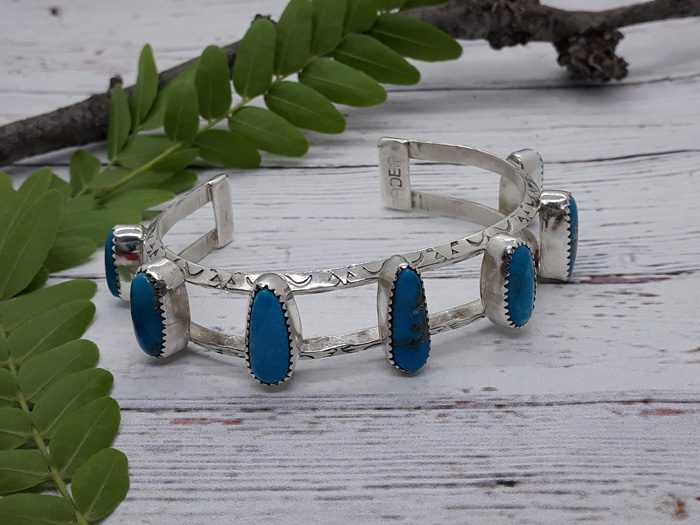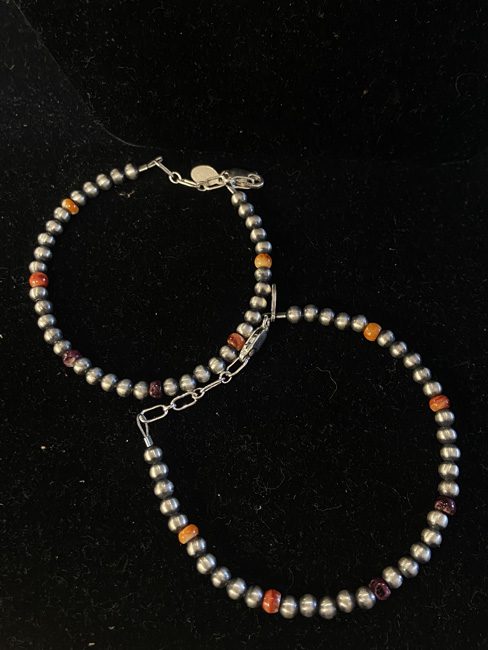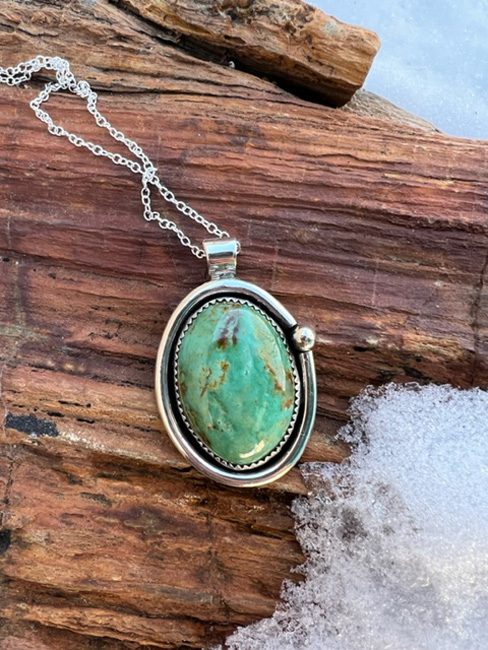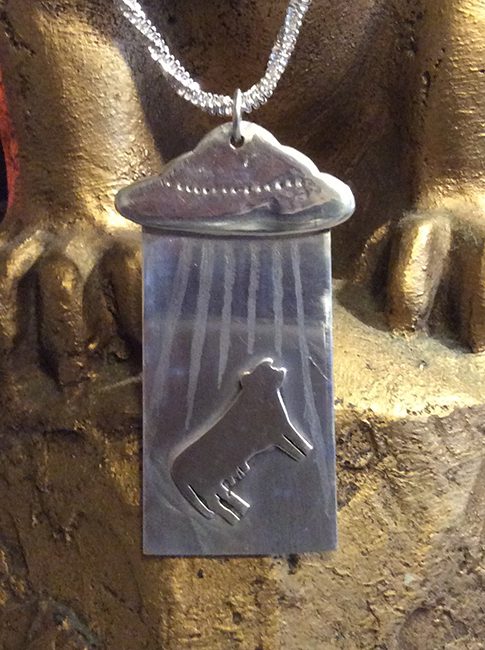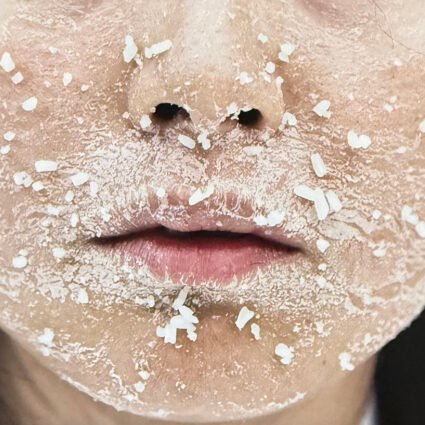A jewelry-making program in New Mexico helps train artisans for steady career opportunities. That may not be enough for the cash-strapped school.
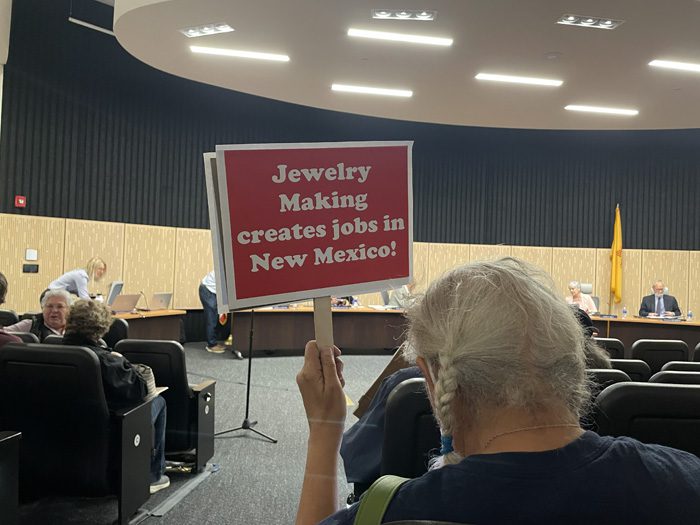
ALBUQUERQUE, NM—In March 2021, Dylan Duryea, an art student at Central New Mexico Community College, signed up for the Albuquerque school’s bench jewelry certification program, but quickly forgot about the opportunity due to a bout with depression.
He eventually found a therapist to help him with his mental health challenges. “I went to therapy and I remembered I had signed up [for the jewelry certificate program]. My therapist thought it’d be a good idea that I continue to go through with [the program],” Duryea said. “After the first day, I actually had excitement again in my life.”
“It changed my life,” said the Albuquerque-born and -raised student and aspiring jewelry professional.
Duryea spoke to Southwest Contemporary before an impassioned April 12, 2022 governing board meeting on CNM’s main campus. Just days before, faculty, students, graduates, and the jewelry business community received word—in a roundabout way, they say—that CNM administration had proposed to sunset the school’s vocational jewelry-making program beginning fall 2023.
Supporters of the bench jewelry program say they were blindsided by the proposition, which they feel would stunt viable career paths for graduating students—especially for women and people of color—in a state that’s often interlinked with the art of jewelry creation. CNM officials, citing high costs, low enrollment, and pandemic-related financial windfalls, say that the bench jewelry certification costs 224 percent more than the average CNM college-credit program. At press time, school officials were slated to vote on the proposal during the next board meeting, scheduled for 5 pm May 10, 2022 at Smith Brasher Hall on CNM’s main campus.
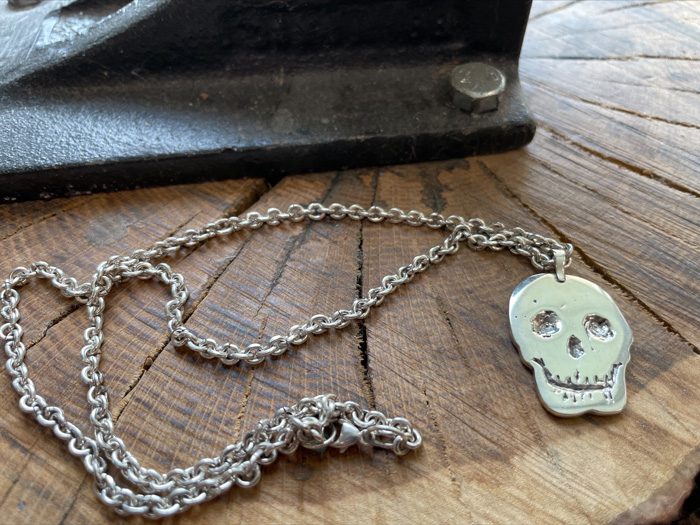
“We’re here because we were not informed or [asked to] participate in any of the decision-making processes to cut this program,” Harley McDaniel, a full-time CNM instructor who says he started the bench jewelry program in spring 2016, told SWC outside of a crowded Smith Brasher Hall auditorium on April 12. Backers of the jewelry and truck-driving program, which is also on the chopping block, spoke in front of CNM president Tracy Hartzler and six CNM governing board members during Tuesday’s hour-plus meeting.
The uproar began last Friday when a CNM human resources letter to the school’s union leadership made the rounds. According to the April 1, 2022 memo acquired by Southwest Contemporary, one full-time faculty and one lab technician in the bench jewelry program would be impacted, either via reassignment, reduction in hours, or a layoff. A similar scenario would apply to three full-time faculty in the program that teaches truck driving, an industry hampered by a nationwide shortage of qualified drivers.
“I have a list of twenty business owners that have signed on in support of our [bench jewelry] program that hire from our program constantly, and that continue to hire from our program,” McDaniel told SWC. He adds that enrollment numbers have been on the low end due to the COVID-19 crisis and that full- and part-time faculty continued teaching jewelry courses online during the pandemic. According to numbers provided by CNM, eight students earned the bench jewelry certificate in 2018-19, six in 2019-20, and four in 2020-21.
During the April 12 meeting, more than thirty-five oppositional voices of the CNM and business community, ranging from faculty and students to graduates and jewelry-store owners, commented during the tense public meeting. (At press time, a change.org petition had garnered more than 1,200 signatures.) Nobody stepped to the microphone in support of cutting bench jewelry, a twelve-credit-minimum certification program that teaches students jewelry design, fabrication, repair, manufacturing, and sales.
“Despite jewelry being a male-dominated trade, the majority of students who have taken jewelry courses with us and graduated with the certificate are women. To eliminate this program is to eliminate this avenue for women and Black and Indigenous and persons of color in trades,” said Shannon Sweet, a technician for the CNM jewelry studio and a former jewelry student at the school. Today, she runs Desert Moonshine Jewelry, a local Albuquerque metalsmith, jewelry design, and fabrication company.
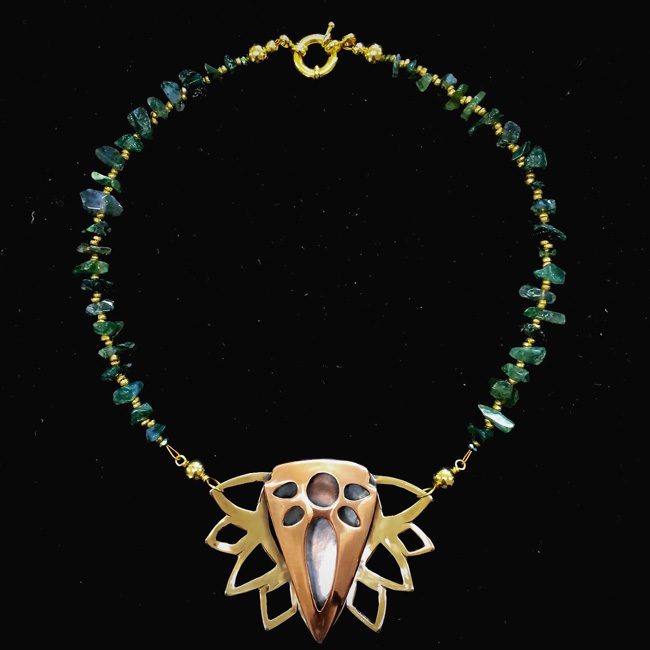
Matthew James Shepardson, owner of T.Skies, an Albuquerque company self-described as a “socially responsible, culture-driven” jewelry manufacturer, tells SWC that without students from CNM’s jewelry program, they would’ve been forced to shutter the operation, which employs many young Native American artisans.
“During the pandemic, five members of our manufacturing group who are from the local pueblos went on lockdown and weren’t able to come to work,” Shepardson explained. “I went to the college and said, ‘Hey, Harley, do you have anybody that’s ready?’ and we hired three jewelers at that time.
“Everyone already knew all the safety protocols, it was just a plug-in with some minor training,” Shepardson continued. “Honestly, it saved the business. I needed qualified jewelers and CNM was the only certified program in New Mexico that I could get fully qualified jewelers to step in.”
When contacted by Southwest Contemporary, Hartzler—who began her presidency of the accredited Albuquerque college, known for its vocational programs, on January 1, 2020—referred us to CNM spokesperson Brad Moore. He explains that the public institution is face-to-face with record enrollment declines and waning revenues and that CNM leadership doesn’t take these decisions lightly.
“Due to enrollment and completion trending downward in bench jewelry, workforce data for our area showing no job growth opportunities and no need for a bench jewelry certificate to enter the industry, and the significant cost to run the program, the [College-wide Integrated Program Review] process determined that it is not a financially viable college-credit program to run,” Moore said. “There will be further evaluation on potentially running bench jewelry as a non-credit program in CNM Ingenuity,” a not-for-profit that provides non-college credit workforce training in fields ranging from the film industry to culinary arts.
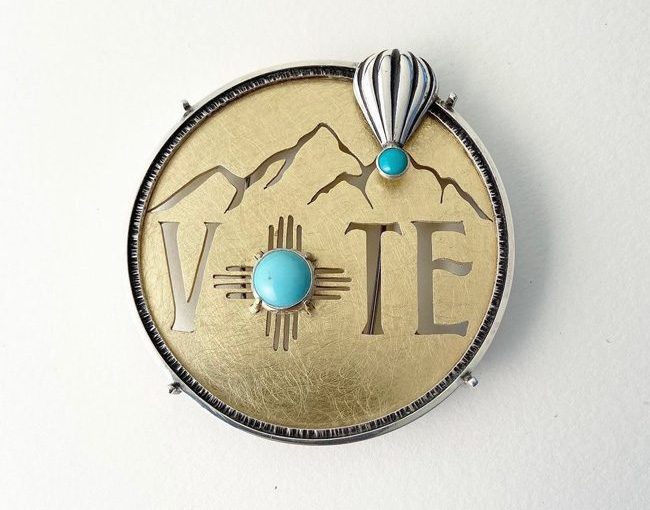
“Of course, decisions to sunset any program, throughout the years and decades, have always been taken very seriously by CNM,” added Moore.
Duryea, who told the CNM board on April 12 that he had attempted to take his life last year and that the jewelry program helped turn things around for him, has his fingers crossed that school officials won’t nix the bench jewelry certificate program when the proposal goes to a vote next month.
“My goal is to become a jeweler… you meet a lot of interesting people and a lot of artists and the teachers are really kind in the program,” he said. “It’s a good way to live and you can make your own living doing it.”

